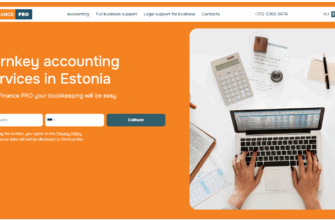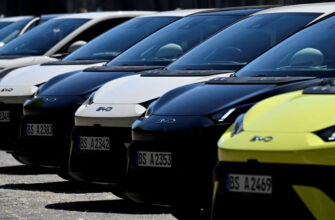The legal gambling industry, particularly online casinos, is a rapidly evolving sector in Europe, regulated at the national level due to the absence of unified EU legislation. Each country sets its own rules for licensing, taxation, and oversight, leading to a diverse landscape of regulations. This article, prepared by the journalists at TheMors, explores how online gambling is regulated across Europe, key trends, and what it means for operators and players. We dive into the specifics of major markets, drawing on insights from multiple sources to provide a comprehensive overview.
- Understanding the real accounting meaning behind financial reports.
- Overview of Online Casino Regulation in Europe
- Looking for a place to play? MELBET
- Regulation by Country
- 1. Malta: Europe’s Gambling Hub
- 2. United Kingdom: Rigorous Standards, Major Market
- 3. Italy: Liberalized Since 2006
- 4. France: Restrictions on Online Casinos
- 5. Germany: Gradual Liberalization
- 6. Sweden: Strict but Open Market
- 7. Netherlands: A New Regulated Market
- 8. Countries with Monopolies or Bans
- Key Trends and Challenges
- Tips for Operators and Players
- Conclusion
- FAQ:
- Which European countries have the most liberal online casino laws?
- Why are online casinos banned in some European countries?
- What taxes do online casino operators pay in Europe?
- How can players ensure they’re using a safe online casino?
- What is the future of online gambling in Europe?
Understanding the real accounting meaning behind financial reports.
Overview of Online Casino Regulation in Europe
The online gambling market in Europe is thriving, generating €123.4 billion in revenue in 2024, with projections to reach €126.3 billion by 2026. Driven by diverse national laws, a focus on player protection, and efforts to combat illegal operators, the industry is a dynamic force. The European Commission encourages modernized national frameworks, emphasizing consumer safety, particularly for minors, and standardized reporting.
Looking for a place to play? MELBET
Most European countries (27 out of 31) have adopted a multi-licensing model, allowing multiple operators to compete under strict licenses. This fosters competition, enhances player protections, and boosts tax revenues. However, some nations maintain monopolies or restrictions on specific games, creating a varied regulatory environment.

Regulation by Country
1. Malta: Europe’s Gambling Hub
Malta is a leading jurisdiction for online casinos, thanks to its liberal laws and low taxes. The Malta Gaming Authority (MGA), established in 2001, oversees all forms of online gambling, including casinos, poker, and sports betting.
- Licensing: The MGA issues B2B (for software providers) and B2C (for casino operators) licenses, covering slots, poker, and live games.
- Taxes: A 5% tax on gross gaming revenue (GGR) makes Malta attractive for operators.
- Requirements: Operators must comply with strict data protection, anti-money laundering (AML), and Know Your Customer (KYC) standards. Servers must be located in the EU/EEA.
- Appeal: MGA licenses are widely recognized, allowing operators to serve international markets.
2. United Kingdom: Rigorous Standards, Major Market
The UK is one of Europe’s largest gambling markets, accounting for over 30% of the region’s revenue (€31.2 billion in 2022). The UK Gambling Commission (UKGC) regulates the industry under the Gambling Act 2005.
- Licensing: Operators need a UKGC license for casinos, sports betting, poker, and lotteries. Applications take about 16 weeks to process.
- Taxes: GGR taxes range from 15% to 50%, depending on the game type.
- Features: Strict social responsibility rules include deposit limits and protections for vulnerable groups. Updates in 2024 tightened advertising and stake limit regulations.
- For Players: Licensed casinos offer high security, but players should stick to UKGC-approved platforms to avoid scams.
3. Italy: Liberalized Since 2006
Italy legalized online gambling in 2006, expanding to poker and casino games in 2011. The Autonomous Administration of State Monopolies (AAMS) oversees regulation.
- Licensing: Operators must obtain an AAMS license, submitting detailed company, financial, and technical documentation.
- Taxes: GGR taxes are 25% for casinos and poker, 24% for sports betting, and up to 47% for horse racing bets.
- Features: Players are exempt from taxes on winnings, making the market appealing. Operators must retain player data for five years.
- Market: Italy offers a wide range of platforms, including slots, table games, and live casinos.
4. France: Restrictions on Online Casinos
France has a complex regulatory system where online casinos remain prohibited. Regulation is handled by three bodies: ANJ (online gambling), Pari Mutuel Urbain (horse racing), and Française des Jeux (lotteries).
- Allowed: Since 2010, sports betting, horse racing, and poker are legal. Online casino games like slots are banned.
- Reason: Traditional land-based casinos, such as those in Monte Carlo, lobby to protect their business. Legalization efforts were delayed in 2024.
- Taxes: Operators pay 29% of GGR, plus 1.5% for the regulator and 0.5% for addiction prevention programs.
- For Players: Many French players use offshore casinos, creating a “gray market.”
5. Germany: Gradual Liberalization
Germany long restricted online gambling, except for horse racing bets. The 2021 Interstate Treaty on Gambling (Glücksspielstaatsvertrag) unified regulations.
- Licensing: Operators can obtain licenses for sports betting and online casinos, but only Schleswig-Holstein permits online slots.
- Taxes: A 5.3% turnover tax, considered high, reduces competitiveness.
- Restrictions: Strict deposit limits (€1,000 monthly), mandatory KYC verification, and advertising bans during certain hours.
- Market: Growth is steady, but many players use offshore platforms, such as those licensed in Malta.
6. Sweden: Strict but Open Market
Sweden liberalized its market in 2019, ending the Svenska Spel monopoly. The Swedish Gambling Authority (Spelinspektionen) regulates the industry–
- Licensing: Licenses cover casinos, betting, and lotteries, with strict player protection standards.
- Taxes: 18% on GGR.
- Features: Limits on deposits and bonuses aim to curb gambling addiction. Players must set time and Spending caps.
- Market: Sweden attracts major operators, but strict rules limit bonus offerings.
7. Netherlands: A New Regulated Market
The Netherlands legalized online gambling in 2021 with the Remote Gambling Act. The Kansspelautoriteit (KSA) regulates the market.
- Licensing: Licenses are issued for casinos, betting, and poker. Operators must be EU/EEA-registered and provide a €5–50 million bank guarantee.
- Taxes: 29% on GGR, plus 1.5% for the regulator and 0.5% for addiction programs.
- Features: Support for local payment systems (iDeal) and strict AML/KYC checks.
- Market: Players enjoy a variety of games, but offshore casinos are blocked via ISPs.
8. Countries with Monopolies or Bans
Some countries maintain monopolies or restrictions:
- Finland, Norway, Iceland: State monopolies (e.g., Norsk Tipping in Norway) control online gambling. Private operators are excluded, but players often use offshore sites.
- Luxembourg: No specific online gambling laws.
- Slovenia, Switzerland: Monopolies on certain products, like sports betting.
- Cyprus: Online casinos and poker are banned; betting and lotteries are allowed.

Key Trends and Challenges
- Multi-Licensing: The shift to multi-licensing in 27 countries fosters competition but creates administrative burdens, with operators holding up to 321 licenses across 21 countries.
- Player Protection: All countries enforce KYC, AML, and GDPR compliance, including identity verification, deposit limits, and addiction prevention programs.
- Offshore Casinos: In countries with bans or high taxes, players turn to offshore platforms (e.g., Malta, Curaçao), fueling a “gray market.”
- Market Growth: The market is projected to reach €56 billion by 2028 with a 7.6% CAGR, driven by slots and live games.
- Technology: AI monitors regulatory changes, while blockchain ensures transparent transactions.
Tips for Operators and Players
- For Operators:
- Obtain licenses in regulated markets like Malta, the UK, or Sweden to build player trust and access markets.
- Comply with KYC/AML and local regulations to avoid penalties.
- Consider Malta or Curaçao for lower taxes and simpler licensing.
- For Players:
- Choose licensed casinos (check for MGA, UKGC, or KSA licenses).
- Set deposit and time limits for responsible gambling.
- Avoid unlicensed platforms to prevent fraud.
Conclusion
Europe’s legal gambling industry is a complex but dynamic market with diverse regulatory approaches. Countries like Malta, the UK, and Italy offer competitive environments, while France, Cyprus, and monopoly-driven nations impose restrictions. Operators must navigate varied regulations, and players should prioritize licensed platforms for safety.
For the latest insights on the gambling industry and other breaking news, visit TheMors – Breaking News. Stay informed with our in-depth reports and expert analysis on global trends!
FAQ:
Which European countries have the most liberal online casino laws?
Malta, the UK, Italy, Sweden, and the Netherlands have liberal frameworks, allowing multiple licensed operators to offer a wide range of games.
Why are online casinos banned in some European countries?
Countries like France and Cyprus ban online casinos to protect land-based gambling businesses or maintain state monopolies, though players often use offshore platforms.
What taxes do online casino operators pay in Europe?
Taxes vary: 5% in Malta, 15–50% in the UK, 25% in Italy, 29% in France and the Netherlands, and 5.3% on turnover in Germany.
How can players ensure they’re using a safe online casino?
Players should verify that the casino holds a license from a reputable regulator like the MGA, UKGC, or KSA and check for secure payment methods and transparent terms.
What is the future of online gambling in Europe?
The market is expected to grow to €56 billion by 2028, driven by technological advancements and increased regulation for player protection.









